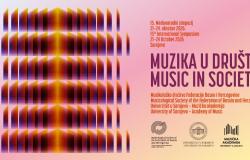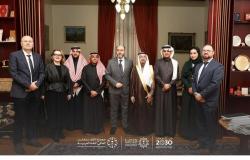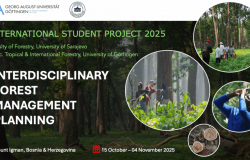Progress, not giving up in times of challenge: Teaching at UNSA in a time of pandemic

The extraordinary circumstances in which higher education found itself gave rise to a prompt response from the University of Sarajevo Faculties and Academies, which resulted in the implementation of the online teaching regime at the University in record time. It turns out that two weeks were enough for a great start, which is perfected every day.
In the case of Faculties that have traditionally introduced study programs that have been implemented according to the distance learning model, the platforms used (Moodle, etc.) have been extended for use to other study programs. Furthermore, Google classroom platforms, Google Meet, Skype and Zoom meetings, BigBlueButton, closed YouTube channels, Socrative platform were introduced for study programs that took place in the regular study mode. Communication with students is done through all available electronic communication channels (Viber, WhatsApp, Skype, Cisco Webex Meetings). Even for distance learning programs, instrumental music studies, all one-on-one instrumental teachers are in contact with their students online and thus gain insight into students' practice and progress, directly / live via Skype or some other application or in a way that students send their recordings to teachers or assistants for listening, followed by analysis via Viber or similar groups. Furthermore, the teaching materials that students should use during classes are, in addition to integrated platforms (Moodle), available to students through Google Drive and OneDrive platforms. At the moment, online classes are conducted at all faculties using mostly the Zoom platform, as well as Office 365.
In terms of organization, it is interesting to look at the Faculty of Law, where online teaching is conducted in different ways: through a website (the Faculty's website is structured as an interactive platform where each teacher and associate independently edits the subject, including information on how to teach using different programs listed below this information), then through the DL platform, e-mail communication with students, and through other available tools for conducting online classes, e.g. Microsoft Forms, Microsoft Teams, Zoom, Google Forms, Youtube, Instagram, Kahoot, etc. Realization of interaction through individual programs includes the presence of students in lectures (e.g. through the application Zoom and Skype), entering data about students who attended the lecture, and their comments and reviews. In this way, an insight into their participation in teaching is gained, about which records are kept. Online lectures and exercises include placing on the appropriate field of subjects on the website of the Faculty live lectures (live streaming), recorded lectures (video), presentations, reference to relevant sources and literature, conducting quizzes, making seminar papers, essays, solving tasks, setting control questions, repetitive test material, etc. Online teaching takes place from all subjects according to the schedule of classes for the summer semester of the academic year 2019/20, which includes online lectures and exercises for 44 compulsory and elective courses in the I and II cycle of studies in the summer semester. The Faculty has also introduced the option of receiving notifications (news feed) via the website, so that students can receive on their own e-mail all notifications that the Faculty publishes without accessing the Faculty's website. The Faculty of Law works every day to improve teaching, enable better access and improve collaboration.
It is interesting to look at the online mode of teaching subjects that are traditionally related to laboratory work that requires the presence of the student and his practical work. For example, at the Faculty of Veterinary Medicine, practical classes on the subject “Physiology of Domestic Animals II” are conducted online. In a period when practical teaching is quite difficult to implement, laboratory exercises in the classroom have been replaced by computer simulation PhysioEx8.0. This simulation is a great alternative for laboratory exercises, where students can perform various experiments in the field of animal physiology. Since students design and perform laboratory experiments on their own, it provides excellent opportunities for developing critical thinking and facilitates mastering the material using a multisensory approach. All students have access to this simulation, so that teaching has an interactive and challenging character, encouraging students to think and find solutions to problems on their own. With the help of the mentioned simulation, many areas are processed, such as the physiology of the cardiovascular system, the physiology of the respiratory system and the physiology of the digestive system. During this week, the chemical processes of digestion were processed, i.e. the effects of various digestive enzymes, such as amylase, pepsin and lipase, were examined, where students - performing various experiments - mastered which temperature and pH values are optimal for enzyme activity in the nutrients decomposition process.

Given the specificity of practical teaching of anatomy and the need for the student to have close contact with anatomical preparations, this period helped the Faculty of Veterinary Medicine to develop and include additional learning resources for students, in order to easily master thematic units. In addition to the standard live exercises using the Zoom app, some of the segments have been further developed to enrich the online content and make it accessible to students. The online platform of the Faculty of Veterinary Medicine, VFS e-teaching, provides access to various sources of online content to support teaching, and includes books and scripts, powerpoint presentations of teaching content, online atlases, 3D anatomical software and video lectures. The recording of video lectures from areas covered so far, such as the anatomy of the nervous and digestive systems, proved to be a very useful material for teaching the subject of domestic animal anatomy. Demonstrating the anatomical parts of the organs using an image with audio explanation is a good alternative to practical exercises with the organs. Also, the content recorded and available in this way is more dynamic and challenging for students compared to the classic use of books and anatomical atlases.
It is interesting to look at how mentoring takes place in these difficult circumstances. Rijad Adžamija, a second-cycle student of Faculty of Civil Engineering, majoring in Roads, went to Rome via the Erasmus exchange to do the research part of his work as part of his master's thesis. Immediately after arriving in Italy, it happened that, due to the already known circumstances, the entire work on the master thesis, both with colleagues from Italy and with a mentor from the Faculty of Civil Engineering, Prof. Dr. Mirza Pozder, organized online. After about a month and a half, through the Embassy of Bosnia and Herzegovina in Italy, the colleague managed to return to Sarajevo where he was placed in quarantine in Bjelave. Despite the isolation and quarantine conditions in which he found himself, Rijad Adžamija actively worked on the thesis and communicated with mentors with live consultations with both the mentor from Sarajevo and colleagues from Italy, so that the work was not questioned at any time.
Due to the COVID-19 pandemic, the Library of the Faculty of Philosophy, University of Sarajevo (FFUNSA) strives to provide users with access to library services in order for the teaching process to run smoothly. Following the IFLA guidelines “COVID-19 and the Global Library Field”, librarians organized work processes. The FFUNSA library allows you to borrow paper once a week in special conditions that ensure the protection of students and staff. Users order the material using the online reservation service via the COBISS system, and then download it using preventive protective measures. In addition, the staff of the FFUNSA Library receives and solves a large number of information queries on a daily basis using modern digital resources and tools, as well as social tagging of verified content on the web. This is confirmed by the statistics of the use of the service, ask the e-librarian. The FFUNSA library also provides access to a portion of required literature in digital form while respecting copyright. Also, during this period, the FFUNSA Library made content from subscribed databases available to users. The work on creating personal bibliographies of teaching staff is proceeding smoothly.
The teaching process and contacts with students in the online environment have become commonplace and are already yielding good results. Transformative processes are unstoppable and are enriched every day with new methods, contents and approaches, giving new dynamics to higher education.







